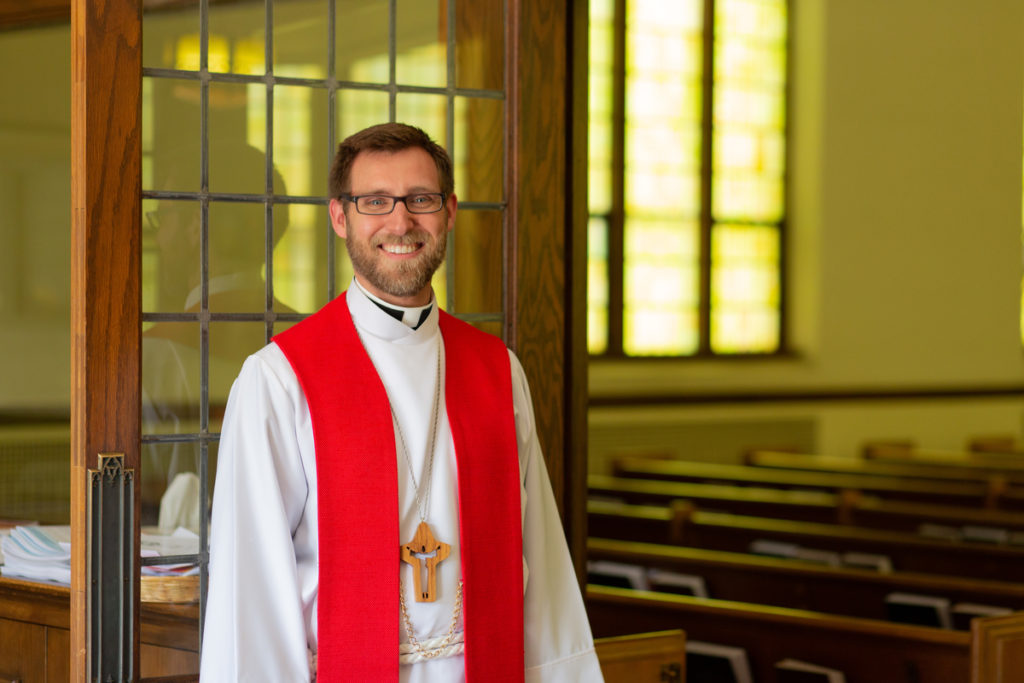Many thanks to Kevin Haug for his very insightful article about the DEIA audit which the ELCA recently commissioned a law firm to do of its governing documents. I hate to think of how many of your benevolence dollars the ELCA spent on this effort. You will find Kevin’s article in this issue of CORE Voice. It is a word of warning to all in the ELCA. You do not need to take my word for it that these recommendations actually are being given as part of this audit. You can check it out for yourself at DEIA_Report_Part_2.pdf (elca.org)
I am an ELCA pastor who has been retired for nearly ten years. When I read these recommendations, my first thought was, “I am glad to be retired.” The immediate response of one ELCA pastor in his early 60’s when I shared these recommendations with him was, “How soon can I retire?”
I thought of the strong, negative response I am certain I would have received if and when I would have shared these recommendations with the congregation council of the church where I was the pastor. I then thought, “We are already facing the challenge of trying to do everything that we are currently doing. How am I now supposed to get everyone on board, enthusiastic about, and actively engaged in fulfilling these recommendations?” And what will be the consequences for us in our synod if these recommendations become requirements and we do not meet them? If congregations that are DEIA-compliant are rewarded with such things as having extra voting members at synod assemblies and greater access to grants and other financial resources, how will congregations that are not DEIA-compliant be punished? For example, will they not be given any names of possible candidates for call if the congregation is looking for a pastor?
Here is just a sampling of the audit’s Recommended Minimum DEIA Standards for Congregations. A question for all ELCA pastors and congregational leaders is this: Is this what you want to spend a considerable amount of your time, energy, and resources on?
1. Upgrade all personnel policies to reflect DEIA values.
2. Require annual DEIA training for all pastors, church staff, and lay leaders, using an Approved (approved by whom?) Provider. At a minimum this training will cover the following topics:
a. How does DEIA advance the values of the Kingdom of God?
b. Is this particular congregation perceived as hostile or unresponsive to members of historically marginalized groups, and if so, how might this congregation reverse that perception?
The ELCA defines “historically marginalized groups” as groups that have for some significant period of history been excluded from participation or leadership in the church on the basis of certain characteristics. They include racial and ethnic minorities, persons whose primary language is other than English, low income persons, persons with disabilities, gender non-conforming persons, and members of the LGBTQIA+ community. (I have asked ELCA leaders who are so concerned for “historically marginalized groups,” what about “currently marginalized groups”? Which I would say includes older, white, cisgender, heterosexual males with traditional views.)
This mandatory, annual DEIA training is also to consider such questions as these –
a. What additional initiatives can this congregation pursue to promote DEIA values?
b. What financial resources does our congregation commit to promoting DEIA values and programs, and should we commit more and if so can we do so on an annual basis?
c. What is Christian White Nationalism, what causes people to adhere to it, and is it consistent with Jesus’ teachings? How might members of historically marginalized groups be offended by Christian White Nationalism?
d. What is Black Lives Matter, is it consistent with Jesus’ teachings, why are people drawn to it, what human needs does it address, and can the church do a better job at meeting those needs?
3. In addition, each congregation is to identify at least one other congregation with opposite or at least very different demographic characteristics and commit to starting at least a one-year relationship with them. This relationship is to include the following:
a. Periodic meetings between the pastors to discuss ways in which the congregations can get to know each other better and plan joint activities to strengthen mutual understanding on DEIA issues. These activities may include joint DEIA training sessions with an Approved (again, approved by whom?) Provider and joint Bible Studies or Biblically based book studies on DEIA topics.
b. Monthly meetings between the lay leaders to plan and administer activities, joint discussions, and ministries.
c. At least six joint worship experiences, followed by a fellowship social hour.
At best these recommendations will be time and energy consuming. At worst they will be one more way in which the ELCA is relentlessly being pushed to the extreme left – in the direction of critical race theory and DEIA ideology.




















And they wonder why membership is falling?
This entire scenario sounds like the government take over of medicine. I remember some 30 years ago, my physician and friend telling me about and showing me all the people he had to hire, just to fill out government mandated forms that had nothing to do with his healthcare. Since then, it has only gotten worse and today we are seeing doctors retire as soon as possible (mine included) due to not being able to do their job. This seems to be what is happening in the ELCA. Maybe, the ELCA should be disbanded as a solution and we go back 50 years. Churches did not vote to have a governing body shove stuff down their throats. While having a governing body can be a good thing, too much of a governing body is a dictatorship. We did not sign up for that. You listen to us, not we listen to you.
Interesting comparison. Thank you for sharing those thoughts.
One of the most Diverse and Equitable and Inclusive Lutheran congregations in the vastly unchurched western Washington is an NALC member…not ELCA. Visit St. Mark’s on Seattle’s Beacon Hill to gain a vision of how the Holy Spirit brings diverse peoples to stand equally before our Savior whose death and resurrection is meant to include any and all who will humble themselves and call on His Name+
One thing that is disturbing about the ELCA’s embrace of DEIA is the fact that it is another viewpoint – not the Scriptures – that is providing the underlying, motivating value system.
I am so glad to have left the clergy roster, et. al. of the ELCA circus. 🤞🏼 good luck.
Thank you for your many years of faithful service to our Lord.
Dennis, like George, I’m out of ELCA roster and also retired. Trouble is I have so many friends such as you who still suffer the foolishness of ELCA antics. So what I do is pray for you to see the light and come out from among them. ELCA is no longer a church. It’s a democracy based on majority rule. Your references to Scripture and the Holy Spirit mean nothing to them. Winning votes is all that matters.
Thank you for your concern and prayers for those still in the ELCA.
Wally,
Good to see you in print. I retired early at the end of 2019 to finally be done with the silliness that has become our former denomination. Alan Hirsch, the Australian missiologist, has opined that the early church grew exponentially and the church in the West has the potential to decline in a similar fashion. The ELCA will be around for years as it feeds off the financial capital from all the properties and buildings it will liquidate during its every more rapid numerical collapse. The trajectory is a 45 degree down angle dirt dart and it’s really sad to watch it unfold. You may remember the story I shared with some during the Sierra Pacific Synod’s vote for a new Bishop in 2002. A member of then Lutherans Concerned came up to me and said, “Either this church recognizes our gifts for ministry or justice demands we burn it to the ground.” Clearly they continue to get both
In classical Marxism, the class that has the power and privilege is the bourgeoisie, which is locked in a dialectical struggle with the proletariat. DEIA/CRT thinking is based i on the same principle, only that individuals belong simultaneously to multiple categories of classes engaged in interlocking struggles over power and privilege – an intersectional struggle, if you will. Key to this way of thinking is that there is no such thing as soul, spirit, angels, heaven, hell, or God. The only thing that matters is what categories you fall in. If you fall into a class identified as privileged (example, white, cisgender, heterosexual, Christian), it makes no difference how you actually treat other people. The system is rigged to help you keep your power and privilege, you are an undesirable person, and you are automatically sent off on a one-way ticket to the re-education camp.
Why? Both Marxism and DEIA/CRT espouse materialism, which means that the only things that exist are “material” in nature. All things are either matter, or come from matter, or at least interchangeable with matter, as energy is. Spiritual things are merely structures made by people for the purpose of helping the privileged keep their privileges. Because they are made up by people, there is nothing spiritual at all. DEIA/CRT’s Marxist pedigree is atheistic at its core; therefore, DEIA/CRT indoctrination is only a tool to bring atheism into the Christian churches. By making this philosophy mandatory, it becomes a de facto doctrine of the ELCA, more so than the Bible, the Creeds, or the Confessions which are often routinely flouted by its so-called leaders.
In classical Marxism, the class that has the power and privilege is the bourgeoisie, which is locked in a dialectical struggle with the proletariat. DEIA/CRT thinking is based on the same principle, only that individuals belong simultaneously to multiple categories of classes engaged in interlocking struggles over power and privilege – an intersectional struggle, if you will. Key to this way of thinking is that there is no such thing as soul, spirit, angels, heaven, hell, or God. The only thing that matters is which and how many categories you fall into. If you fall into a class identified as privileged (example, white, cisgender, heterosexual, Christian), it makes no difference how you actually treat other people. The system is rigged to help you keep your power and privilege. In the event of a revolution, you are considered to be an undesirable person, regardless of your personal qualities. You are then automatically sent off on a one-way ticket to the re-education camp. The crime for which you deserve punishment is being in a class perceived to to have had power and privilege.
Why? Both Marxism and DEIA/CRT espouse materialism, which means that the only things that exist are “material” in nature. All things are either matter, or come from matter, or at least interchangeable with matter, as energy is. Spiritual things are merely structures made by people for the purpose of helping the privileged keep their privileges. Because spiritual things are made up by people, there is nothing spiritual about them at all; spirituality is as “material” as any other human-made social or political structure. DEIA/CRT’s Marxist pedigree is atheistic at its core; therefore, DEIA/CRT indoctrination is only a tool to bring atheism into the Christian churches. By making this philosophy mandatory, it becomes a de facto doctrine of the ELCA, more so than the Bible, the Creeds, or the Confessions which are often routinely flouted by its so-called leaders.
Thank you for sharing those insights.